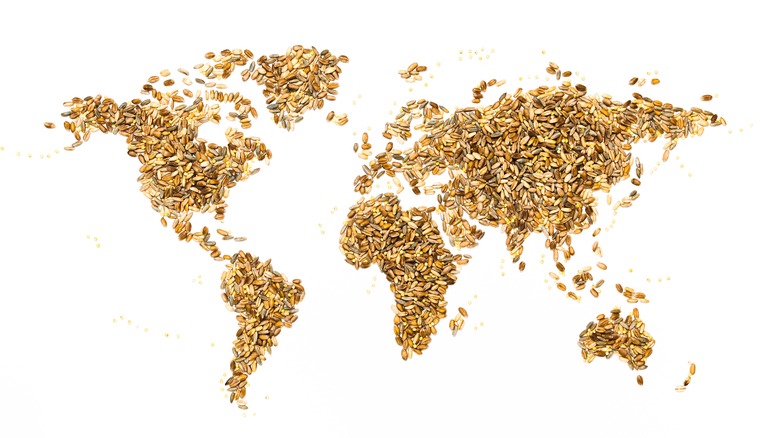Why The UN Will Fall Short On Its Promise To End World Hunger
It appears that the United Nations (UN) are going to fall short of its goal to end world hunger by 2030 (via Bloomberg). In a recent report, the UN acknowledged that the global agriculture sector will likely not be able to meet the world's food demands. Bloomberg reports that the UN's Food and Agriculture Organization (FAO) issued a joint report with the Organization for Economic Cooperation and Development on Wednesday that revealed the shortcomings of our current global food system. It said that the original goal to end world hunger by 2030 is unlikely to occur as many nations still struggle to afford adequate food and nutrition.
According to one FAO report, almost 690 million people have inadequate food resources. That number has risen by 10 million in the last year, and 60 million in the last five years. Bloomberg notes that overcoming the current crises would require a 28% increase in agricultural productivity which would be triple the growth rate of the last 10 years.
War in Ukraine has worsened global hunger
According to the FAO, the COVID-19 Pandemic has had a severe effect on food security. Bloomberg notes that the Russian invasion of Ukraine has also caused widespread food inflation recently which has had an impact on the global food supply and may cause millions more to go hungry.
Russia and Ukraine reportedly produce approximately one-third of the world's wheat supply, per CNBC. Russia is also a major exporter of fuel and fertilizer which is expected to affect food pricing into next year. The Russian invasion, and ensuing sanctions against it, have caused a severe impact on global food prices. Russia has denied contributing to the crisis. Bloomberg notes that this will likely keep grain prices high through 2023.
According to the report, it is important to establish social safety nets for the most vulnerable who are likely to be affected by these rising costs. It says that reducing carbon emissions, and curbing calorie intake is also necessary to prevent more persons from falling into hunger.

